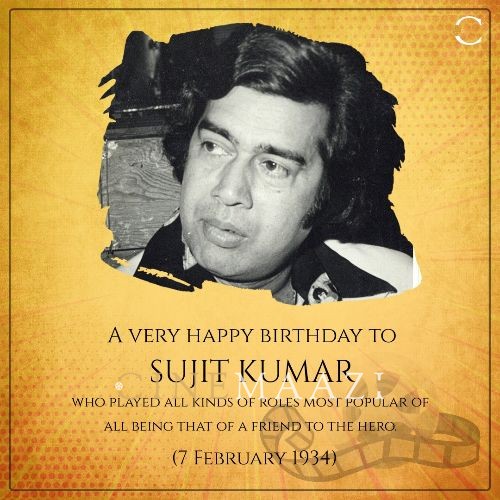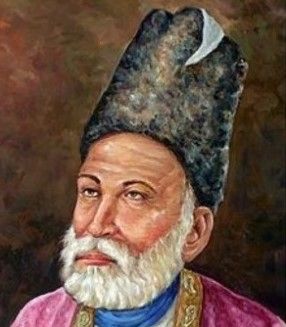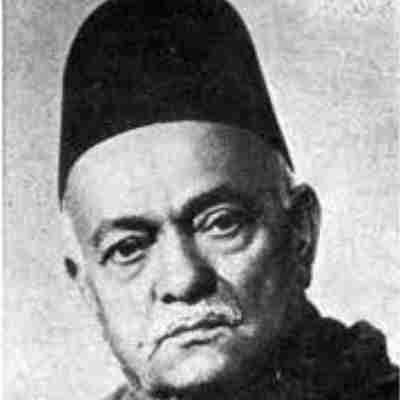Ghory: The Laurel Of Indian Cinema's Comedy Duo

Subscribe to read full article
This section is for paid subscribers only. Our subscription is only $37/- for one full year.
You get unlimited access to all paid section and features on the website with this subscription.
Not ready for a full subscription?
You can access this article for $2, and have it saved to your account for one year.
Hindi cinema history is incomplete without the mention of one of the earliest comedy duo Dixit and Ghory. They based their antics on Laurel and Hardy. Ghory started his career with the silent Alladin and his Wonderful Lamp (1927) and Dixit with Sparkling Youth (1931). Later, they formed the comedy duo and mostly worked for Ranjit Film Company with Bhutio Mahal(1932) their first film together. While Dixit died on 29th June, 1949, Ghory migrated to Pakistan and continued working there and appeared in many films produced in Lahore and Karachi including Shimmi (1950), Miss 1956 (1956), Anokhi (1956), Mandi (1956), Kaarnama (1956) etc. Ghory died on 9th December, 1977
Catching Ghory, while he is snatching an half hour’s well earned rest on the sets, was not an easy job: but his respect and admiration for the ‘Filmland’, which he believes is really doing its best, in serving the Indian Film Industry, to an admirable degree, earned me this privilege, and I was allowed an interview. After talking on different things of general interest I asked when and where he was born and falteringly asked about his parentage and courteously he replied :
“I was born on 11th August 1901, at Lahore. I come from an Afghan family, now domiciled in the Punjab. My forefathers were pearl merchants, and so far, I am the first in that great line to break that chain of occupation. Who knows I may revert to that after finishing with my screen work?”
“When did you join films?” – I asked
“In 1926.” – replied.
“How far have you studied?”
“I am not holding any University degree” he said smilingly, and quickly added “but I can read, write and speak tolerable good English, and my Urdu and Persian are, I should say, of college standard. In Bengali, and Gujarati I can understand people, and can make myself understood. You must have seen a bit of my Gujarati, in Sati Savitri (1932).
Regarding his studio experience he said, “So far I have rolled through Laxmi, Royal and Imperial, before finding my lodgment in Ranjit, but I am sorry to admit that none so far is up to my standard and liking though I have always been trying to do my best.” He added that there was no reason why he should not like the profession. He also added that he is quite at home with Violin, Harmonium, Sitar, Mandolin and Piano. He can sing a little and his hobby is reading.
“Please name the female artiste you like best for screen, and why?”
“Miss Madhuri (Beryl Claessen). Because she works with real zeal and genuine zest.”
“Do you need much help from your make-up-man?”
“Here you have cornered me. I would love to have expert attention in this respect, but where is the man? India so far, cannot boast of a single make-up-man, who knows his job. At least I do not know of any.”
Questioned regarding his favorite out-door game, he mentioned hockey and tennis. Simple food and moderation are his dietic principles.
“What kind of story do you like for you?”
“Comic and only comic.”
“What do you think is the educative value of pictures ?”
“Every picture has got, I should say its own educative value in its own way. But viewing this apprehensive question from a broader point of view, pictures can be made to do wonders in the real realm of education, and if story-writers are mindful to write their stories keeping this objective in view, then I think we film workers, can have the satisfaction of being of some educative service to humanity as well.”
This said, Mr. Ghory rose to his full height of 5 feet 6 inches, to go to the sets and this ended the interview.
All this time, that I was talking to this entertaining artist of cultured habits, I was feeling as I was seeing him on screen. Really there is not much difference between Ghory on the screen and Ghory off the screen. He is just the same Ghory everywhere, as we love to see him on the screen.
Cinemaazi thanks Sudarshan Talwar for contributing this interview conducted S V Kriparam in the early 1930s.
About the Author







.jpg)



